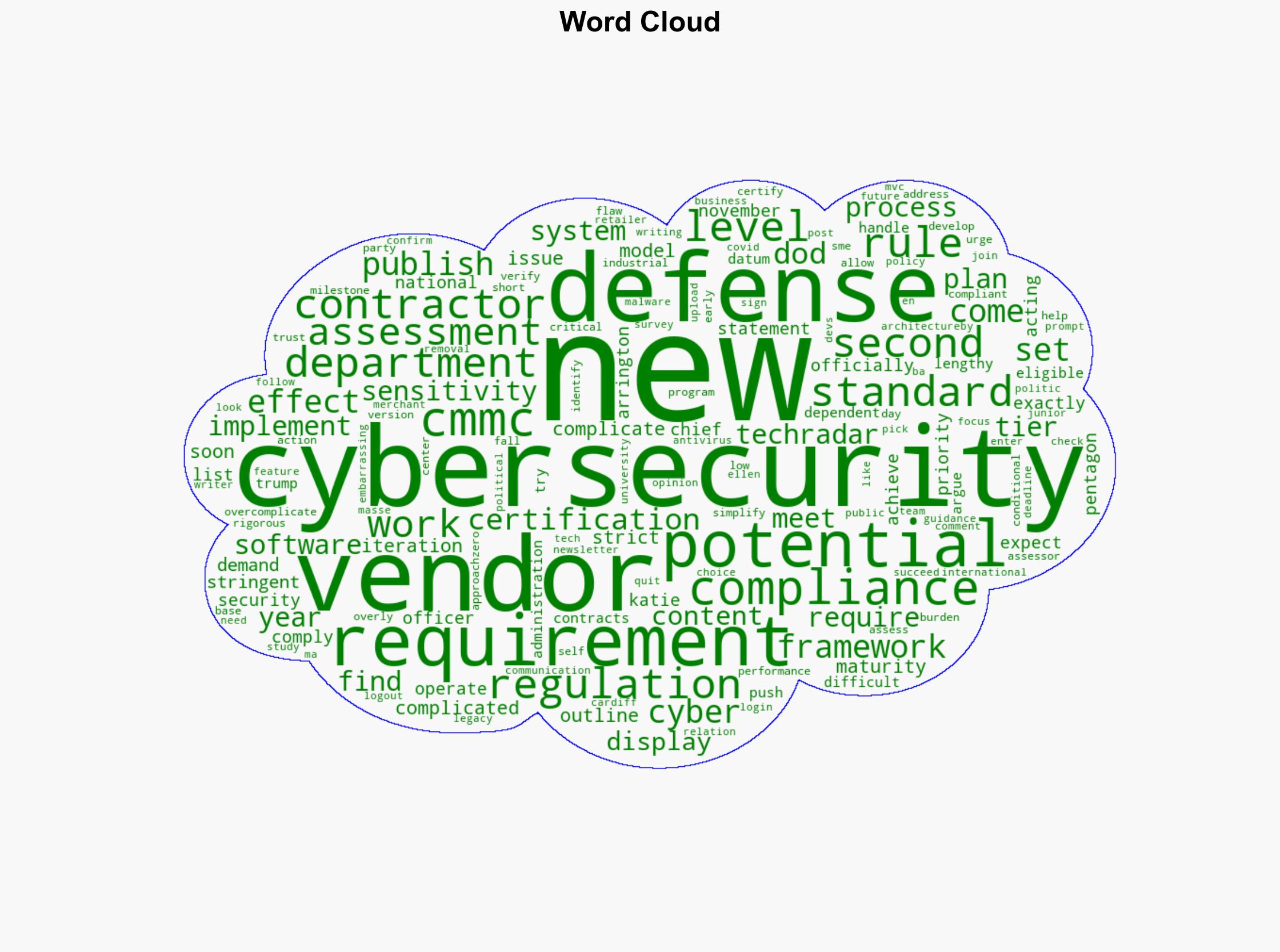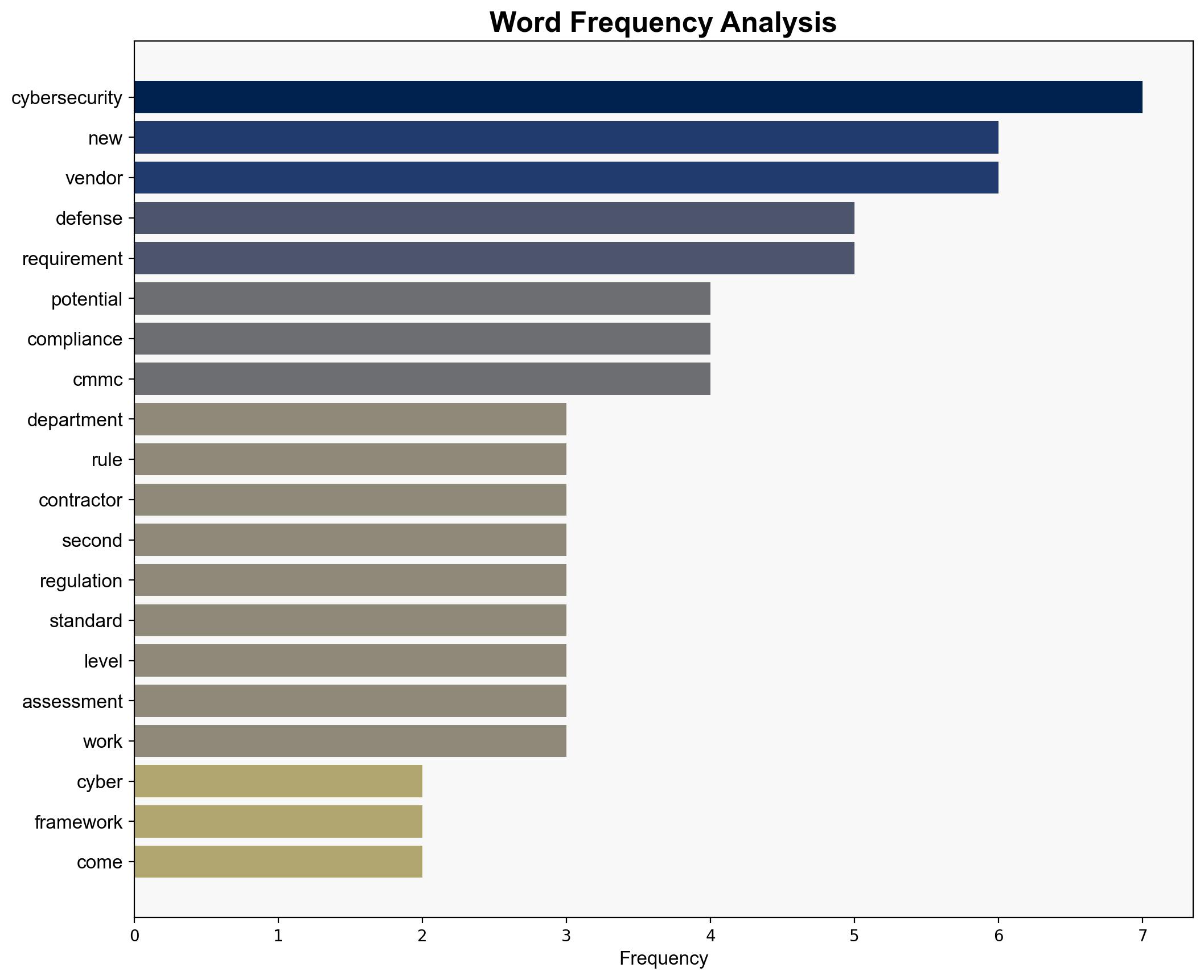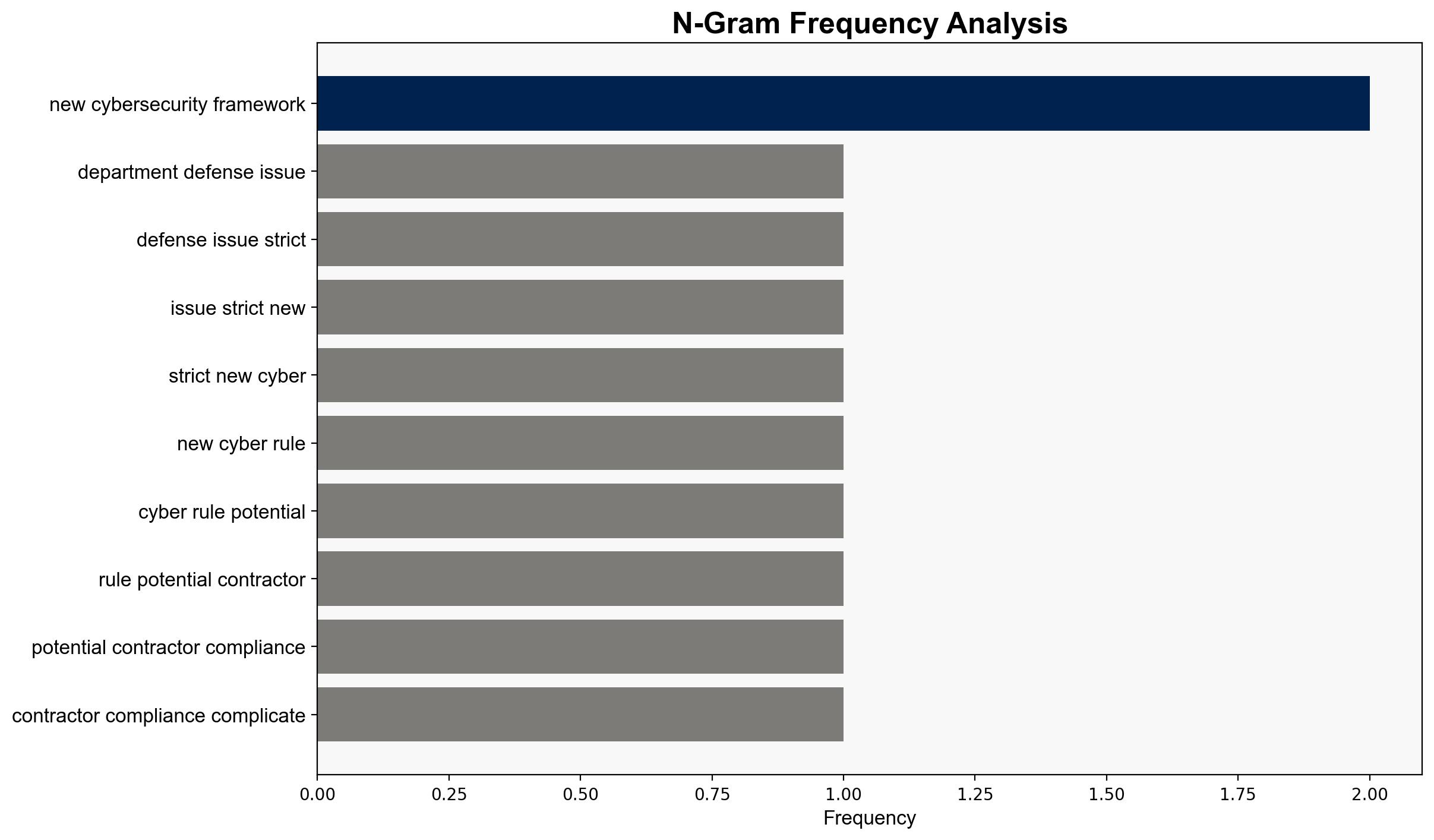US Department of Defense issues strict new cyber rules for potential contractors – TechRadar
Published on: 2025-09-10
Intelligence Report: US Department of Defense issues strict new cyber rules for potential contractors – TechRadar
1. BLUF (Bottom Line Up Front)
The introduction of the new Cybersecurity Maturity Model Certification (CMMC) by the Department of Defense (DoD) aims to enhance cybersecurity standards among contractors. The most supported hypothesis is that these rules are intended to strengthen national security by ensuring that all contractors meet rigorous cybersecurity standards. The confidence level in this hypothesis is moderate due to potential implementation challenges. It is recommended that stakeholders prepare for compliance by investing in cybersecurity upgrades and training.
2. Competing Hypotheses
1. **Hypothesis A**: The new CMMC rules are primarily designed to enhance national security by ensuring that all contractors handling sensitive data meet stringent cybersecurity standards.
2. **Hypothesis B**: The new CMMC rules are a bureaucratic measure that may inadvertently burden small and medium enterprises (SMEs) without significantly enhancing cybersecurity.
Using the Analysis of Competing Hypotheses (ACH) 2.0, Hypothesis A is better supported due to the explicit mention of national security priorities and the structured compliance framework. Hypothesis B is less supported but highlights potential economic impacts on SMEs.
3. Key Assumptions and Red Flags
– **Assumptions**: It is assumed that the new CMMC rules will be uniformly enforced and that all contractors have the capability to comply. There is also an assumption that increased cybersecurity measures will directly correlate with enhanced national security.
– **Red Flags**: Potential overcomplication and the burden on SMEs could lead to non-compliance or withdrawal from DoD contracts. The lack of clarity on how SMEs will be supported in this transition is a significant concern.
4. Implications and Strategic Risks
The implementation of the CMMC could lead to a more secure defense supply chain, reducing the risk of cyber espionage and data breaches. However, the economic impact on SMEs could reduce the pool of eligible contractors, potentially increasing costs and reducing innovation. Geopolitically, this move may signal to adversaries a heightened focus on cybersecurity, potentially deterring cyber threats.
5. Recommendations and Outlook
- **Mitigation**: Develop support programs for SMEs to facilitate compliance, including financial assistance and cybersecurity training.
- **Opportunities**: Encourage partnerships between larger contractors and SMEs to share resources and expertise.
- **Scenario Projections**:
– **Best Case**: Successful implementation leads to a robust cybersecurity posture across the defense supply chain.
– **Worst Case**: High non-compliance rates among SMEs lead to a reduced contractor pool and increased costs.
– **Most Likely**: Gradual compliance improvement with initial challenges for SMEs, eventually stabilizing the contractor landscape.
6. Key Individuals and Entities
Katie Arrington, who is involved in the implementation of the new cybersecurity standards, is a key individual in this context.
7. Thematic Tags
national security threats, cybersecurity, counter-terrorism, regional focus





